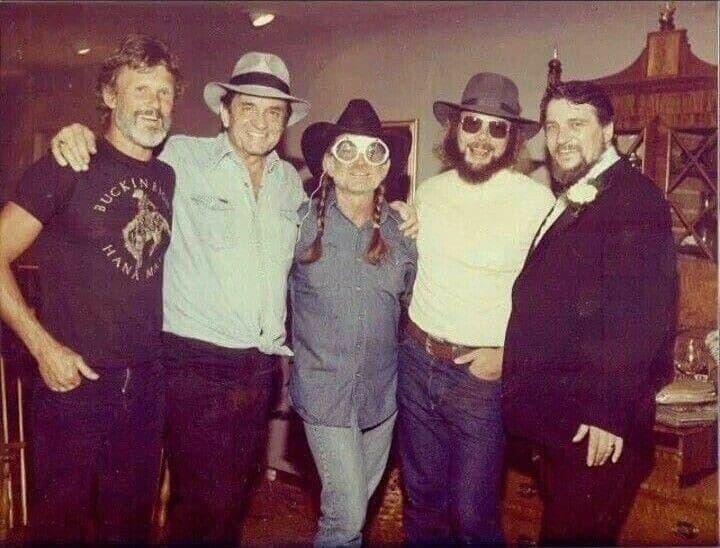
A Timeless Lament for the Working Man’s Struggle
Ah, for those of us who’ve seen a few seasons come and go, there are some songs that just embed themselves in your very soul, becoming not just melodies but reflections of life itself. One such poignant tune, a stark and honest portrayal of hardship that still resonates today, is The Highwaymen‘s “Welfare Line.” Released in 1990 as part of their album, Highwayman 2, this track didn’t just climb the charts; it etched itself into the collective consciousness, peaking at an impressive No. 3 on the Billboard Hot Country Singles & Tracks chart. It was a testament to the raw, unvarnished truth it offered, delivered by four titans of country music: Johnny Cash, Waylon Jennings, Willie Nelson, and Kris Kristofferson.
Imagine, if you will, the early nineties. The world was changing, but some struggles, especially for the working class, remained stubbornly persistent. “Welfare Line” captured that struggle with an almost painful clarity. It wasn’t a preachy song, nor was it one to shy away from uncomfortable realities. Instead, it was a narrative, a snapshot of a life pushed to the brink, a life where dignity wrestled with necessity. The beauty, and indeed the enduring power, of this song lies in its unflinching look at the desperation of someone forced to rely on government assistance, not out of laziness, but out of circumstance. It speaks to the universal fear of falling, of not being able to provide for your own, and the quiet shame that can accompany such a predicament.
The story behind “Welfare Line” is as rich and authentic as the voices that sang it. Penned by Paul Kennerley, a songwriter renowned for his ability to craft narratives steeped in American life, the song was a perfect fit for The Highwaymen. These were men who had lived lives of triumph and tribulation, men who understood the grit and grace of the common man. Each one, in their own way, had faced challenges and knew the taste of hard times. Johnny Cash, with his gravelly voice that carried the weight of a thousand stories, brought a profound sense of world-weariness and empathy to the lyrics. Waylon Jennings, with his defiant spirit, embodied the frustration and pride of someone who simply wanted to earn an honest living. Willie Nelson‘s signature relaxed delivery added a touch of melancholic resignation, while Kris Kristofferson, the poet of the group, imbued his lines with a quiet, observational wisdom.
Together, their collective experiences and individual gravitas infused “Welfare Line” with an unparalleled authenticity. It wasn’t just a song about a character; it felt like a song about everyone who had ever stood on the precipice of desperation, looking out at an uncertain future. The lyrics paint vivid pictures: “Standing in the welfare line, praying for a sign,” or “Used to have a job, a steady hand, now I’m just another forgotten man.” These weren’t abstract concepts; they were lived realities for countless individuals. The song doesn’t judge; it simply observes and laments, inviting the listener to feel the weight of the protagonist’s plight.
For us, the older generation, “Welfare Line” evokes a particular kind of nostalgia—not a longing for hard times, but a remembrance of an era when country music often served as a voice for the voicemakers, a mirror reflecting the struggles and resilience of everyday Americans. It reminds us of a time when songs could be raw and real, unafraid to tackle difficult subjects with honesty and compassion. It’s a song that speaks to the enduring human spirit, the quiet dignity that persists even in the face of adversity, and the hope, however faint, for a better tomorrow. It’s a testament to the power of music to connect us, to remind us of our shared humanity, and to offer a sense of understanding, even across the decades. “Welfare Line” isn’t just a memory; it’s a timeless echo of the working man’s struggle, a melody that still whispers truths to those willing to listen.